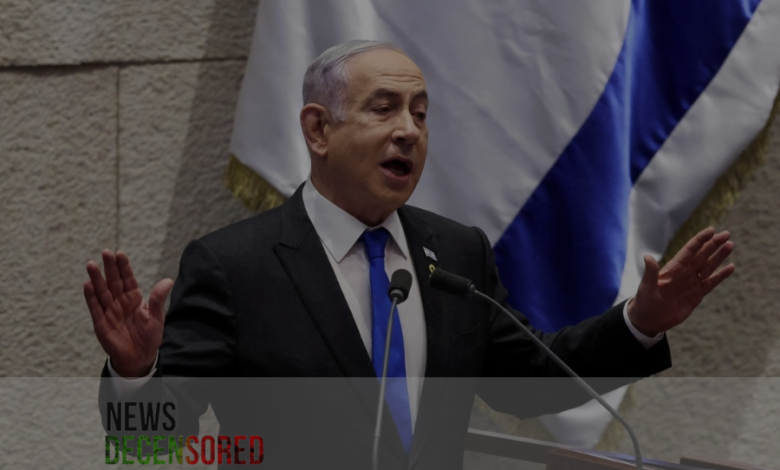Israeli Parliament Passes Resolution Rejecting Palestinian Statehood

In a dramatic and controversial vote late on Wednesday, the Knesset, Israel’s parliament, rejected the creation of a Palestinian state. This decision appears likely to create political ramifications, as it was made just days before Prime Minister Benjamin Netanyahu visited the United States.
The bill is supported by the Netanyahu coalition and the right-wing opposition and was approved 68 in favour and 9 against. It is important to mention that even Benny Gantz, who many Western leaders consider less radical than Netanyahu, supported the bill and his party as well.
The resolution categorically denies the idea of Palestinian statehood even while couched in the language of negotiations. It states: The aura of established certainty regarding the creation of a Palestinian state west of Jordan is unbearably imminent as declared by the Knesset [Parliament] of Israel. It also supports that Hamas will instantly capture a Palestinian state and will use it as a launching pad for radical Islamic terrorists in coordination with Iran to decimate Israel.
Palestinian National Initiative and secular political Mustafa Barghouti, who acted as secretary-general for the Palestinian National Initiative, was particularly dubious about the resolution as long as no Zionist party in either power or opposition opposed the resolution. He described it as an official declaration of the death of Oslo and of the peace process in what looked like an obscene embrace with Palestinians.
The Oslo Accord, signed in 1993 and the second in 1995, sought to create a Palestinian state by forming the Palestinian Authority as an interim administration. However, the accords also brought changes that have been regarded as problematic in one way or another, such as putting more than 60% of the West Bank under Israeli control and arranging rather problematic security cooperation between Israel and the PA. Since then, Israel has continued to occupy the West Bank and enforce a blockade on Gaza since 2007.
This most recent parliamentary vote was made just a few months after another recent resolution sponsored by Netanyahu in February, which underscores the further reinvention of Israel’s anti-Palestinian statehood position. Netanyahu’s planned speech to Congress and his planned meeting with US President Joe Biden, who has time and again endorsed the two-state solution, will be shaped by this.
This also epitomizes a contradiction of recent statements supporting a two-state solution, such as the speech delivered by King Charles of the United Kingdom as well as the United Nations Secretary-General, Antonio Guterres, who has condemned Israel’s policies in the West Bank region for harming the chances for peace.
At the same time, the Israeli military carries on its attacks on the Gaza Strip; airstrikes have been reported and claimed the lives of many Palestinians in the past few days. The war has caused the death of more than 3800 Pakistanis, mainly women and children, and damages in Gaza.
The crisis has worsened, and one of the senior Emirati officials has proposed that an international force be sent to bring order to the given area. It closely follows current ceasefire talks with the assistance of the United States, Qatar, and Egypt that outline plans for the prisoners’ exchange and cessation of hostility.
The new resolution and conflict continue in Gaza and will ensure that despite Netanyahu’s preparation for his US visit, the regional issue of most significance for Middle Eastern stability and the state of international relations will remain extremely dynamic and unpredictable.




